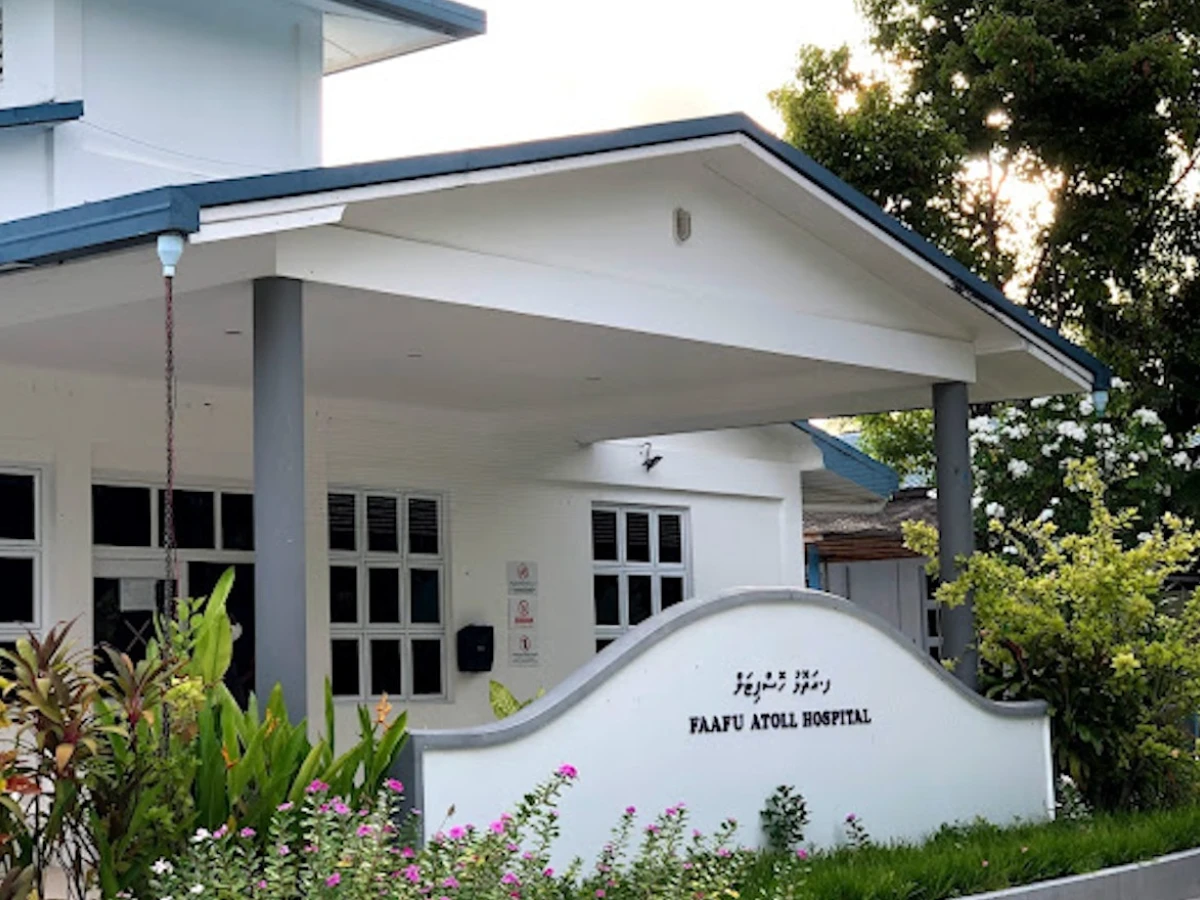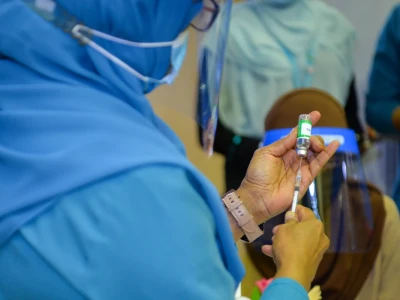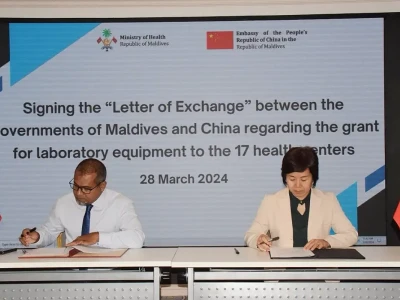
Primary healthcare services launched in Faafu Atoll
Services launched in Faafu atoll will reduce the number of people who have to leave the area for medical care.
Top Stories
By
Shahudha Mohamed
A primary healthcare centre has started providing holistic medical services in Faafu atoll.
The centre involves the participation of community individuals and all relevant institutions to provide appropriate care to those in need of medical care.
Highlights of the primary healthcare system include:
-
Diagnosis and treatment, and ensuring that treatment is completed
-
Creating awareness to improve public health
-
Removing factors that lead to illness rather than taking medication
-
Prevention,early diagnosis and provision of treatment before the onset of the disease
-
Providing intermittent treatment for non-communicable diseases that require long-term medication
The health ministry announced the launch of primary healthcare services in Faafu atoll in a video tweeted on Monday night. Here are some highlights from the presentation:
-
primary healthcare practices will ensure treatment for all members of the community
-
In the system, the priority will be on the needs of the patients
-
Services provided at the site include screening of all residents of the area for non-communicable diseases; such as testing for diabetes and blood clots
-
Diseases will be diagnosed early, treatment will begin immediately and regular follow-up will be conducted to monitor the patient's condition
-
People with mental health problems and those at high risk of developing cancer can be identified
-
Services in Faafu atoll will reduce the number of people who have to leave the area for medical care.
In a tweet along with the presentation, the ministry said that the 'soft launched' services in Faafu atoll aim to align the country's healthcare system with the PHC tenets in the WHO Astana Declaration.
The Astana Declaration, which came into force at the World Primary Health Care Conference in 2018 in collaboration with the World Health Organisation (WHO) and UNICEF, designed to strengthen the primary healthcare system, improve public health and provide health care to all. The main contents of the treaty are:
-
Making good political decisions on health-related issues
-
Developing a system of sustainable primary healthcare
-
Creating an aware, empowered society
-
Government and human resources should cooperate to help complete the system
If a better system of primary healthcare is put in place, problems can be identified before the onset of the disease, healthy habits are prioritised, and the incidence of chronic diseases can be significantly reduced within the community.
The recent STEPS survey conducted in the country to assess the prevalence of non-communicable diseases has shown that there is a high risk of such life-threatening diseases in the country. The mortality rate, due to such diseases is high.
According to the study,:
-
One in four people have high blood pressure
-
14% of people have higher blood sugar than they should have
-
A vast majority of the country's population indulges in unhealthy habits
-
Poor eating habits and less exercise




